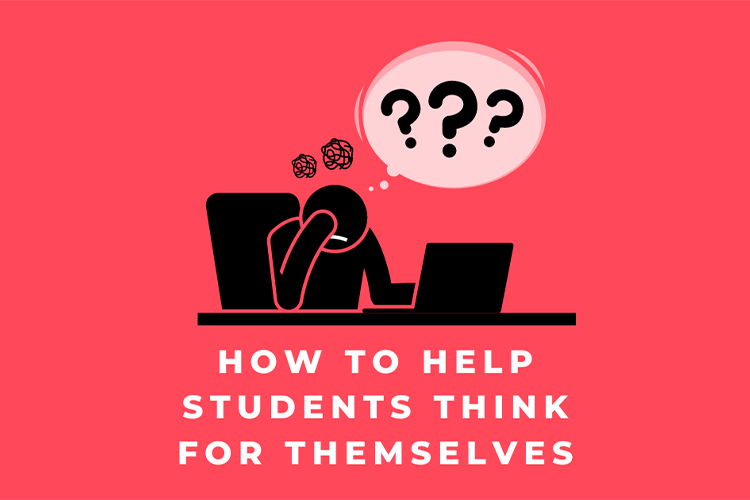

Teaching students means teaching them how to deal with the world, not just teaching them what’s in their textbooks. They won’t have a teacher or parent by their side at all times to guide them, so it’s important to instill critical thinking skills, and to teach them how to think for themselves.
These skills should be taught at an early age, so that when they get older they’ll have all the necessary tools to make informed decisions for themselves.
Rather than just relaying the content of the course, teachers should focus also on making sure that their students possess the capacity to go out and look for answers themselves.
The goal is not just to impart knowledge, it’s also to empower them to seek knowledge on their own. A curious mind is a far better route to knowledge than any teacher could ever be.
What is Critical Thinking?
A basic definition of critical thinking is the intellectual process of actively applying and/or evaluating information. This information can be gathered from observation, experience, reflection, reasoning, or communication. It is the ability to look at a situation, analyze the given information, and use that information to make an intelligent decision.
With this in mind, it’s easy to see why this is such an important skill for young minds. Possessing the capacity to think critically will help them in school and far beyond.
It will allow them to have an open mind, to raise important questions, and figure out solutions to complex problems. In short, a critical thinker will not just excel academically, they will also be a very attractive prospect for any employer.
So now that we know what critical thinking is, and why it’s important, let’s look at some ways you can instill a critical thinking mindset in your children.
Encourage Questions
Thinking for yourself is all about curiosity. A mind that’s always looking to learn, is a mind that will never stop thinking. So, when dealing with young children, always encourage them to ask questions.
To set the right example, ask them questions as well. Teach them that it’s ok to be wrong sometimes, as long as one then commits to learning what’s right. Challenge them, give them difficult books to read, or complex movies to watch, so they may ask you questions.
Don’t Have All the Answers
While encouraging questions is extremely important, it is equally as important for your kids to know that you don’t have all the answers. That they can’t just bring you every problem, and you’ll be able to solve it for them. Encourage them to look for the answers themselves.
Especially in creative work, such as writing an essay, let them figure it out for themselves. Don’t give them all them all the answers, so as to avoid them becoming dependent on you as a source of knowledge. Let them figure out how to solve some problems on their own.
Encourage New Things
Art may not be something most parents consider crucial to education, but it is a very important method of cultivating critical thinking. Creative writing, drawing, painting, playing music all require one to solve problems that often don’t have a single solution.
Encourage them to try these things, and others, so that they encounter new problems only they can solve.
Traditional education often follows a very rigid structure, but most workplaces do not. In professional life, they may be asked to abandon a system they’ve become comfortable with, in order to do something entirely different. Encouraging them to try new things at an early age will help them adapt to the challenges of life, later on
Mysteries
People are often afraid of things they don’t understand. It can be scary to look at a problem, or a thing, and not know what to make of it. Having the ability to look at a completely new situation critically is a very important life skill.
To encourage this in young children, introduce them to topics and concepts outside of the scope of their school curriculum. Introduce them to mysteries, and don’t give them all the answers. Instead, encourage them to think of the answer themselves.
Communication
A hot new trend in education these days is social-emotional learning, and for good reason. It focuses not only on academic achievement, but also on making students better, well-rounded people, ready to face all the challenges life throws at them. An important part of social-emotional learning is the skill of communication.
Children often lack all the words to communicate their feelings effectively. As an adult, it is your job to help to through this process. Teach them how to understand their emotions, and teach them how to express those emotions better.
This will also help them develop empathy, the ability to understand what others are feeling. Empathy will allow them to better understand people from all different walks of life, and to approach a problem in new and creative ways that otherwise might not have occurred to them.